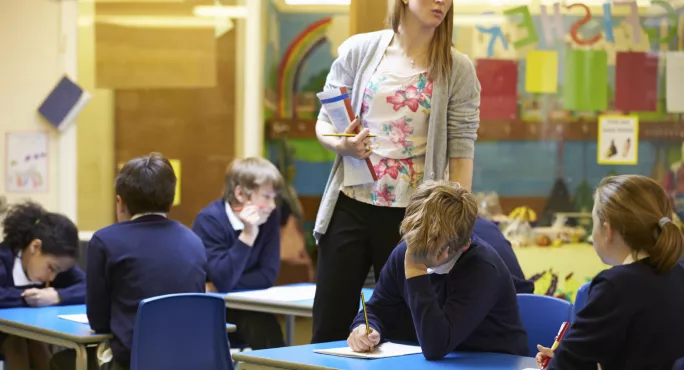More than half a million 10 and 11-year-olds across England will sit their key stage 2 Sats next week. This is only the second year of the new, harder tests, and the controversy that surrounded their introduction shows no sign of abating.
On the contrary, concerns about the way we assess young children, and hold their schools to account for their attainment and progress, are at an all-time high. Groups of parents are becoming more vocal about the effect high-stakes testing is having on their children’s wellbeing and mental health. Teachers are struggling to provide the broad, rich, deep curriculum they know their pupils need, while also ensuring they can spot a fronted adverbial at 20 paces. School leaders anxiously await this year’s results, knowing that the performance of an often tiny group of children can have a huge impact on their and their school’s future.
There is, though, a glimmer of light at the end of what can feel like a very dark tunnel. There are signs that the current education secretary recognises some of the issues with the current approach to primary assessment, and is willing to do something about them.
The government’s announcement, at the end of last year, that the moderation of teacher assessment at KS2 would be improved, that issues of accessibility and pupils’ experience of the reading test would be given greater consideration and, particularly, that the proposed Year 7 resit would not go ahead, were all steps in the right direction.
And the current government consultation on primary assessment, on which the Department for Education worked closely with the education unions, includes some thoughtful and sensible proposals. If implemented, these could significantly improve both children’s and teachers’ experience of statutory assessment.
The suggestion that the KS1 Sats could be made non-statutory is likely to prove extremely popular (though the quid pro quo of a new Reception baseline less so). And the proposed move away from “secure fit” and back to “best fit” in assessing children’s writing is a welcome recognition of the importance of allowing teachers to use their professional judgement and to consider the strengths of a piece of writing in a holistic way.
However, the consultation barely scratches the surface of the deeply flawed relationship between the assessment system and the way in which our primary schools are held to account. This issue was brought into sharp relief by the publication earlier this week of the Education Select Committee’s report on primary assessment.
Drawing on nearly 400 submissions of written evidence, plus a series of oral evidence sessions with teachers, school leaders, academics and other experts, the select committee’s report concluded that “many of the negative effects of assessment are in fact caused by the use of results in the accountability system rather than the assessment system itself … this high-stakes system does not improve teaching and learning at primary school.”
It’s damning stuff. The report recommended a number of ways in which this situation could be improved. These include publishing a rolling three-year average of KS2 results instead of results from a single cohort, and requiring Ofsted to report on the extent to which schools offer a broad and balanced curriculum.
These are promising suggestions. The Association of School and College Leaders is interested in exploring and developing these ideas, and in considering other ways in which our approach to accountability might be improved. To this end, we are launching an independent review of primary accountability, which will report later this year.
All of this may feel very distant to the Year 6s walking nervously into the school hall on Monday, and to their teachers waiting anxiously in the wings. And possible changes as a result of the general election may, of course, have an impact on current government policy in this area.
I’m heartened, though, by the degree of consensus among school leaders, teachers and parents about what needs to be done to create a fairer, more humane system. Whatever happens on 8 June, we must continue to focus attention on the issues with the current system, and to push for better alternatives.
This is a crucial opportunity to significantly improve the way in which our children are assessed and our schools to held to account. As a profession, we owe to it to children, to parents and to ourselves not to squander this chance to make assessment and accountability in primary schools what it should be - something that helps teaching and learning rather than hinders it.
Julie McCulloch is a primary specialist at the Association of School and College Leaders
For all the latest news and views on Sats, visit our specialised Sats hub.
Want to keep up with the latest education news and opinion? Follow Tes on Twitter and like Tes on Facebook



